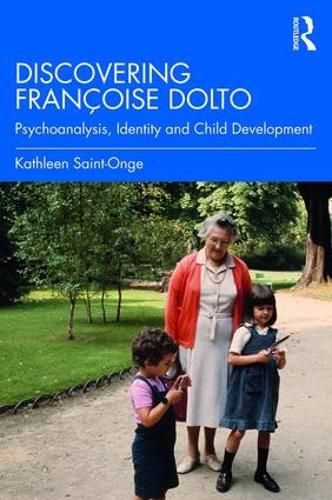Readings Newsletter
Become a Readings Member to make your shopping experience even easier.
Sign in or sign up for free!
You’re not far away from qualifying for FREE standard shipping within Australia
You’ve qualified for FREE standard shipping within Australia
The cart is loading…






This psychobiographical study of the renowned French pediatrician and psychoanalyst Francoise Dolto introduces both her theories of child development and her unique insights into language and identity.
A friend of Jacques Lacan’s, Dolto believed that we are all humanized through language, and that the words we use carry unconscious traces of our early histories of love, suffering and desire. Suggesting that infants unconsciously symbolize and that a continuous circulation of unconscious affects-the transference-prevails in all language-based relations, her findings challenge assumptions about autism, autobiography, linguistics, literacy, pedagogy and therapy.
Dolto’s own corpus-a rich archive blending the personal and professional-demonstrates this, with echoes between Dolto’s constructs about the child and her own challenging childhood. This fascinating book will not only introduce the work of Francoise Dolto to many readers, but will be a valuable resource for all psychoanalytic researchers and theorists interested in childhood, language and identity.
$9.00 standard shipping within Australia
FREE standard shipping within Australia for orders over $100.00
Express & International shipping calculated at checkout
This psychobiographical study of the renowned French pediatrician and psychoanalyst Francoise Dolto introduces both her theories of child development and her unique insights into language and identity.
A friend of Jacques Lacan’s, Dolto believed that we are all humanized through language, and that the words we use carry unconscious traces of our early histories of love, suffering and desire. Suggesting that infants unconsciously symbolize and that a continuous circulation of unconscious affects-the transference-prevails in all language-based relations, her findings challenge assumptions about autism, autobiography, linguistics, literacy, pedagogy and therapy.
Dolto’s own corpus-a rich archive blending the personal and professional-demonstrates this, with echoes between Dolto’s constructs about the child and her own challenging childhood. This fascinating book will not only introduce the work of Francoise Dolto to many readers, but will be a valuable resource for all psychoanalytic researchers and theorists interested in childhood, language and identity.